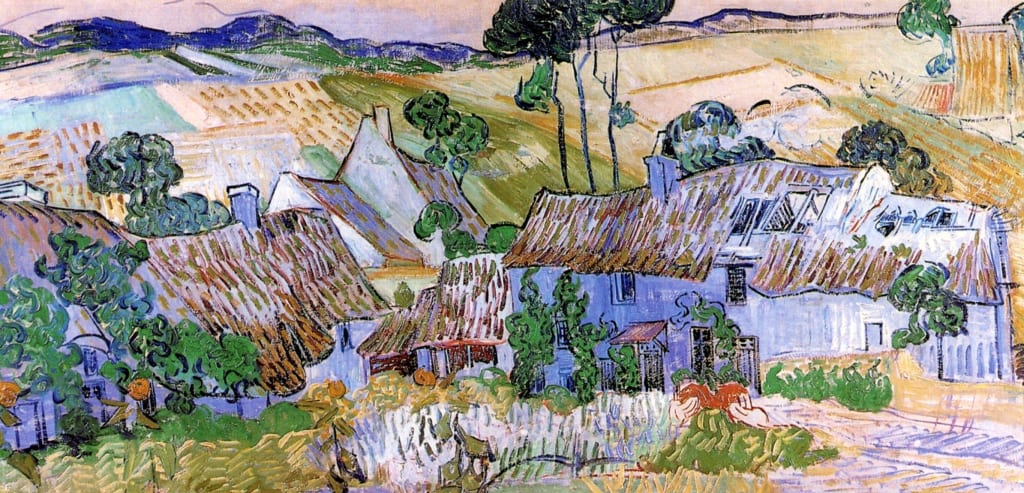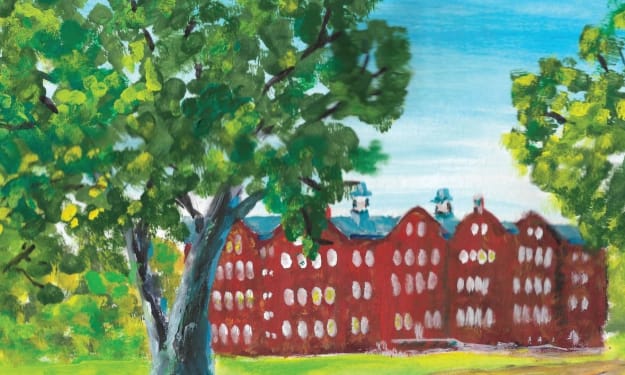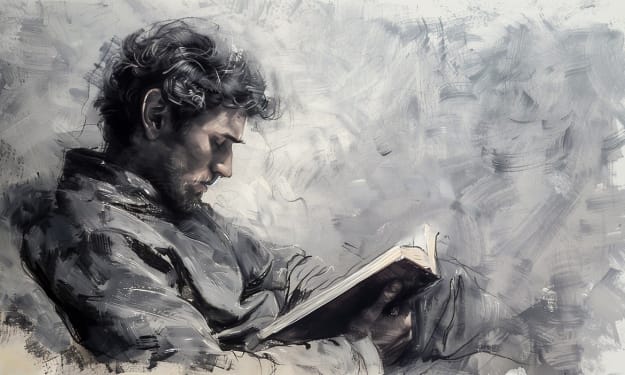Bijou's Tale
Historical Fiction (of sorts!)

In the Year of Our Lord 1458, a dog went on public trial in Bourgogne, France. The charge: thievery. The punishment if convicted: death.
Putting an animal on trial wasn’t a new occurrence; the previous year the good people of Bourgogne had tried a pig and her six piglets for murder. The sow was accused of killing a baby; her piglets named as accomplices. The judge exonerated the piglets but found the sow guilty and sentenced her to death by hanging. Nobody cried over the demise of the murdering pig, but people had mixed feelings about this new accusation. It centered around the loveable Bijou, the little black dog owned by the equally loveable Jacques the Bard. Jacques spent his days journeying through Europe, spinning stories in public squares to rapt audiences. He usually wandered through Bourgogne in early spring and wove wonderful tales of princes and popes and mighty kings while the playful Bijou romped with the village children.
One night, while Jacques ensnared the villagers with his melodic voice, Bijou wandered through the enthralled crowd and chanced upon a velvet pouch lying in the dirt next to Madame D’Airelle’s feet. Rooting through the pouch, Bijou’s wet tongue wrapped around a large ruby ring. As he tugged the ring into his mouth, Madame D’Airelle glanced down, let out a horrific scream, and wrestled the ring from the wriggling dog, who thought this was some grand new game of tug-o-war.
The matter should have ended there, except cranky, sour old Madame D’Airelle abhorred dogs and insisted the mayor charge the mongrel with theft. So, a few days later, the trial commenced.
They held it on a warm April afternoon in the town square so everyone could attend. Bijou sat, tongue lolling happily, in a makeshift prosecution box as Madame D’Airelle stated her case. After she finished her rant, the mayor, who acted as judge, turned solemnly to Jacques.
“As the accused cannot defend itself, you may speak for it, if you wish.”
Jacques the Bard wrapped his travel-stained cloak around his shoulders and turned to the crowd, his faded stringy hair framing his gaunt but pleasant face. He cleared his throat, and the warm baritone that had filled the air on so many happy spring nights now wrapped around the crowd like a comforting old blanket.
“I will not only prove my dog’s innocence,” he said, “I will convince you that Bijou is the most noble dog who has ever lived. Listen now, to my story.”
<<<>>>
A couple of years ago (said Jacques), in the Germanic town of Mainz, there lived a great man wrestling with a great conundrum. Johannes Gutenberg, creator of that famous invention, the printing press, was unsure exactly what to do with his new device now he’d invented it. He had used it to publish a poem, but that seemed an inept product for such a wonderful machine. No, he must find a noble use for the press. But what?
He pondered for days with no success. He sat one morning, staring at the contraption, and didn’t notice little Bijou poking his curious nose into the room. The dog had strayed from me as we roamed along Mainz’s cobbled streets, and had found Gutenberg’s door ajar. Bijou scrambled into the room and began sniffing around, hoping to find a scrap to eat. You know how hungry my little Bijou gets.
(The crowd chuckled.)
Well, about this time, Gutenberg noticed the dog. At first, he was annoyed. Bijou had jumped on a bench and was sniffing a painting of the Virgin Mary hanging on the wall. Johannes leaned forward to shoo him away, and it was then that Bijou turned his beautiful brown eyes on the great inventor. Nobody can resist those eyes. Look at them now.
(He nodded at Bijou. The dog thumped his tail and fixed his bright brown orbs on the crowd, who oohed in adoration…except Madame D’Airelle who harrumphed in disgust.)
Gutenberg reached out to pet Bijou. As his hand touched the dog’s curly fur, his eyes came to rest on the serene face of the Virgin Mary. And it was then that the solution to his problem swept over him, like a divine wind.
“Mein Gott!” he said, dropping to his knees and crossing himself.
Bibles. Bibles that would be available for all to read and treasure, from the mightiest king to the humblest peasant. He would print Bibles…for the good of mankind and the glory of God.
<<<>>>
Madame D’Airelle wrinkled her long nose. “Mon dieu! Do you seriously expect us to believe that the great Gutenberg’s decision to print Bibles was based solely on the influence of your filthy mongrel?”
Jacques smoothed his cape and gazed steadily at his accuser. “Gutenberg was so grateful that he gave me a gold florin and asked if he could keep the dog. But I couldn’t bear to part with my sweet Bijou. My long journeys would be lonely without him.” He patted a small leather pouch tied around his neck and smiled at Bijou, now curled up in the prosecution box with his eyes shut. “I still keep the florin close to my heart, as a reminder of how precious my little Bijou is.”
Madame D’Airelle frowned. The dog let out a squeaky yawn, and the crowd chuckled with delight. Jacques’s warm smile widened.
“I shall give you another example of Bijou’s goodness,” he said. “Something closer to home.”
<<<>>>
It was a glorious day. Our noble French soldiers were on the verge of their greatest triumph—defeating the English and recapturing Bordeaux. The never-ending War that had ravaged our country for a hundred years was close to an end.
Now, Bijou and I happened to be traveling with our army as entertainers, to keep up the soldiers’ morale with stories and songs, when the Battle of Castillion—the last battle of the war—occurred. And it was Providence that we were there because one last holdout—a garrison of stubborn English soldiers—refused to surrender.
Our soldiers had easily vanquished most of the English army. But this little band had taken refuge in a rocky crevice. While our general pondered on whether to use the cannon or charge the entrenched soldiers, thus possibly sacrificing more French blood, the good little Bijou took action. Most of you know how intelligent my dog is. One could almost say he has the wisdom of a saint.
(“Blasphemy!” Madame D’Airelle hissed.
“Shh!” someone in the crowd whispered.)
Well, little Bijou began to bark. Before we could comprehend why he was barking, all manners of dogs began heeding Bijou’s call and running to his side. They came out of nowhere: big curs and dainty lap dogs, lean and quick hounds and muscular fighting dogs. They streamed towards Bijou like rats flocking to the Pied Piper.
And with Bijou in the lead, that brave army of mongrels charged the English line and routed them with bites and snarls. The enemy soldiers were more terrified than if our men had leveled their firearms and barraged them with shot. They ran, screaming in confusion, leaving their weapons behind. The battle was won, the War over. The general proclaimed Bijou a honorary captain and hero of France.
<<<>>>
Madame D’Airelle’s thin lips clamped into a hard line. She turned to the mayor. “You cannot possibly believe this nonsense.”
“King Charles himself presented Bijou with a medal of appreciation,” Jacques said.
“Let’s see it, then.”
Jacques stared despondently at his feet. “Alas, I traded it for food during the horrible winter we experienced last year.”
“Of course, you did,” Madame D’Airelle snapped.
The mayor turned to his aide and winked. “I do recall something about a pack of dogs at the Battle of Castillion, don’t you?”
The aide nodded. “Oui, I heard that too.”
“What a brave dog,” someone in the crowd said.
Madame D’Airelle folded her arms across her ample bosom. “This is preposterous. The war was already won, regardless of the dog. Your story proves nothing.”
“Perhaps one more example is in order,” Jacques said.
<<<>>>
Our final story finds Bijou and me wandering towards the town of Domrémy, in northern France. I spotted a haystack and decided to take shelter there for the night. As I curled up in the warm hay, Bijou wandered off to explore the farmhouse nearby.
In the courtyard sat a young girl gazing at the golden sunset. She was an ordinary girl, of no great consequence. Yet Bijou, who in his nighttime escapades tends to keep away from strangers, was immediately attracted to her, as if he knew this little peasant girl would go on to do great things.
He approached her cautiously. The girl did not notice the dog, yet as her eyes drifted from the setting sun to the quiet courtyard, she glimpsed Bijou’s shadow stretching across the ground…a shadow that, in her eyes, took the form of a beautiful angel…
(“Wait!” Madam D’Airelle yelled. “Domrémy? A young girl? You’re describing Joan d’Arc. She has been canonized a saint. This is heresy!”
“If you interrupt again,” the mayor warned, “we will escort you from the premises.”
“But this incident would have happened over thirty years ago. The dog wouldn’t even exist yet.”
“Remove her,” the mayor said to his aide. “We want to listen to this story in peace.”
Madame D’Airelle shook off the aide’s hand and stalked off in fury. The crowd gave her departure a rousing cheer.)
…a beautiful angel (Jacques went on). The girl rose to her feet and whispered, “Who are you?”
In response, Bijou sneezed. But to the girl it sounded like a call. An angel’s call to war…
<<<>>>
“And with that last wonderful tale,” the mayor said after Jacques finished, “I find the dog, Bijou, innocent of all charges. And a truly noble animal besides.” He scratched Bijou behind the dog’s alert little ears.
The crowd cheered. Jacques the Bard scooped the wriggling Bijou into his arms. The mayor shook his hand. “Sorry for the trial, Jacques,” he whispered. “We never believed horrible Madame D’Airelle’s claims that Bijou was a thief. We just wanted to hear you tell a few more stories before you left.”
Jacques bowed to the mayor and turned to the crowd. “Unfortunately, now we must now leave the good people of Bourgogne and resume our journey. The people of Seville are waiting, and it is a long trek. Until next year!”
After many heartfelt adieus, man and dog trotted down the dirt road and into the countryside, escorted by skipping children and friendly farmers. Hours later, they walked alone, their well-wishers left far behind. Jacques studied the dimming sky, then picked out a quiet patch of woods where they might spend the night in the soft heather.
He lay down, and Bijou snuggled next to him. Jacques stroked the dog’s head, then held out his hand. Bijou’s mouth opened, and five saliva-covered silver pennies dropped into Jacques’s palm.
“Not bad, Bijou.” Jacques dried the pennies on the heather and shoved them into his leather pouch. “You must have swiped these from that nice farmer—the one who let us ride in his cart those last couple of miles. Where were the coins hidden?”
Bijou thumped his tail in response and gave his master’s hand a lick.
“Well, you keep your secrets, then, my friend. Thank you for the pennies, although that ruby ring would have fetched a fantastic price on the streets of Seville. Too bad that nasty woman caught you.”
He patted the fluffy head again. Bijou closed his eyes and yawned.
“Good dog,” said Jacques the Bard.
About the Creator
Nikki Bennett
I am an author of mainly middle grade and young adult novels, as well as an artist and freelance editor. I have several novels published through Firedrake Books, available on Amazon.
www.bennettcreativeservices.com





Comments
There are no comments for this story
Be the first to respond and start the conversation.